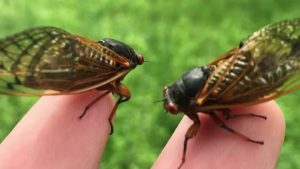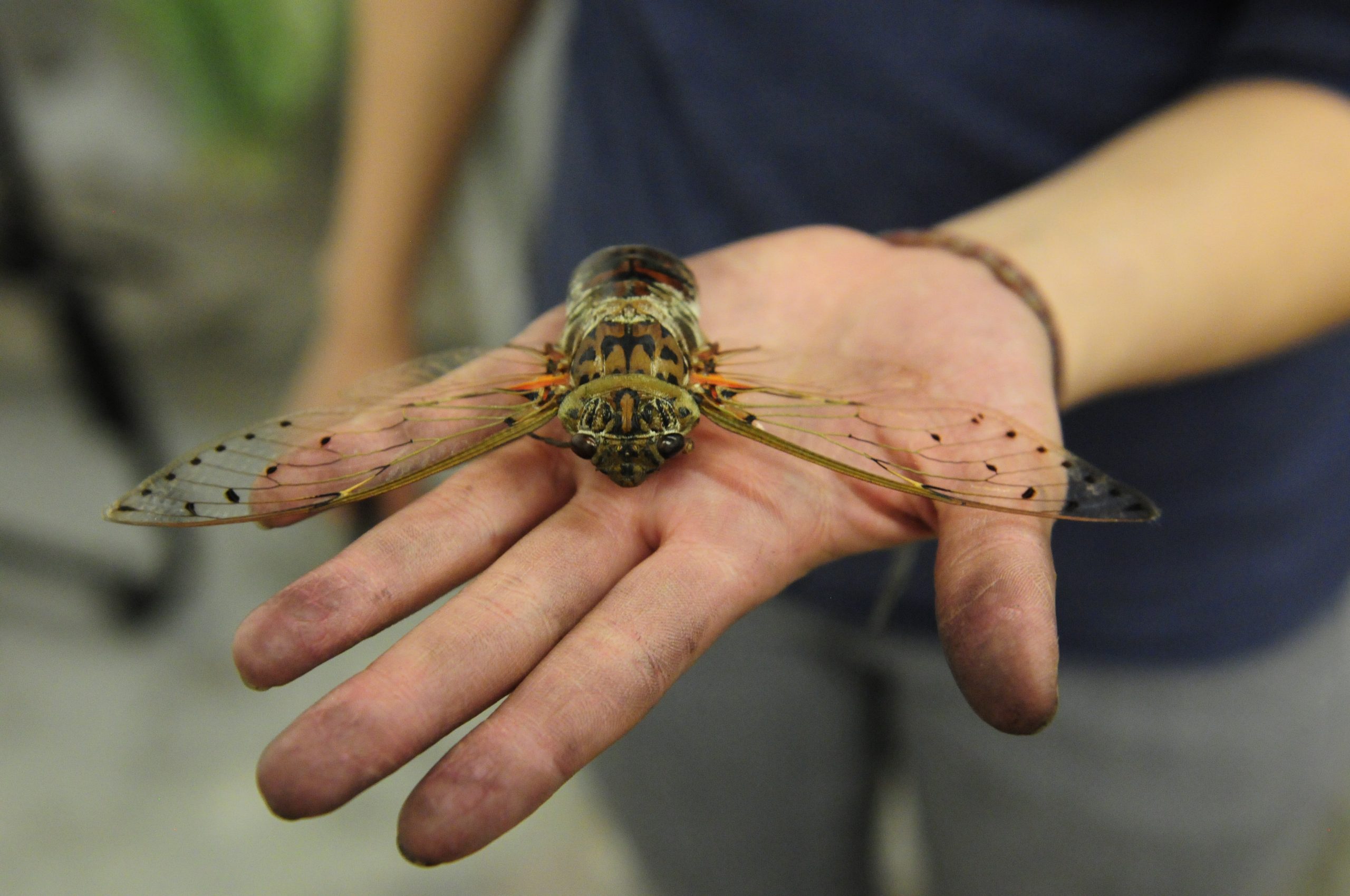The Loud Buzzing Noise Explained
The unmistakable and deafening buzz filling the air in South Carolina has been the mating call of cicadas. This collective song has been so intense that it prompted several calls to the Newberry County Sheriff’s Office, with residents describing the noise as similar to a siren, a whine, or a roar. According to WIS reports, the sheriff’s office even posted on Facebook to clarify the situation: “Although to some, the noise is annoying, they pose no danger to humans or pets. Unfortunately, it is the sounds of nature.”
A Biblical Proportion Sound
Sheriff Lee Foster likened the sound to something out of the Bible, describing it as “like the locust coming.” He noted that a handful of calls were received about the cicadas on Tuesday, with some deputies being stopped and asked about the noise by residents. The cacophony of cicadas can reach volumes louder than a police siren and just a bit quieter than a jet engine, according to the Centers for Disease Control and Prevention.
A Rare Ecological Event
Periodical cicadas, unlike the annual ones, emerge every 13 to 17 years, making this a rare event for South Carolina. Eric LoPresti, an associate professor and entomologist at the University of South Carolina, emphasized that this brood is harmless to humans and pets. They cannot bite, making this a fascinating but safe ecological event. LoPresti encourages people to appreciate this natural occurrence: “I think people should go out there and enjoy it. It’s really a bonanza for things like birds and rodents. There’s all this free protein.”
Mixed Reactions from Residents
Residents visiting Lynch’s Woods Park in Newberry County had varied reactions to the cicada swarm. Kelli Helms found the noise obnoxious yet fascinating, noting, “It doesn’t happen all the time, so it’s pretty cool.” Bryn Eagleson, a recent transplant from Michigan, found the insects’ song meditative, saying, “Just that sound in the background kind of puts you into a meditative state on your walk. It’s really quite wonderful.”
A Short-Lived Phenomenon
Entomologists reassure that this swarm will be short-lived, lasting only two to three weeks. LoPresti advised, “It’s going to be a pretty short-lived phenomenon, so you can put your earplugs away soon.” This buzzing in the backyards of South Carolinians is part of a once-in-a-lifetime event, with scientists noting a rare double brood emergence of cicadas in certain parts of the country, a phenomenon not seen since the 1800s.
Looking Ahead
For those who find the noise overwhelming, relief is on the horizon. The next anticipated cicada swarm in South Carolina will not occur until 2037, giving residents plenty of time to prepare for the next auditory spectacle brought by these fascinating insects.
The Impact on Local Wildlife

The emergence of cicadas is more than just a noisy inconvenience; it plays a crucial role in the ecosystem. Cicadas provide a significant source of food for various predators. Birds, rodents, and other wildlife benefit from the sudden abundance of cicadas, which offer a rich source of protein. This influx of prey can lead to temporary boosts in the populations of these predators, which in turn can have cascading effects throughout the local food web.
Eric LoPresti highlighted this benefit, suggesting that residents might see an increase in bird activity as these creatures take advantage of the cicada bonanza. “It’s a feast for them,” he said, “and it can be fascinating to watch how nature responds to such a large influx of food.”
Historical Context and Future Predictions
Cicadas have been a part of North American history for centuries, with records dating back to early colonial times. These insects have fascinated scientists and laypeople alike due to their unique life cycles and the sheer volume of their emergence events. The current brood’s emergence is particularly significant because it is part of a rare double brood phenomenon, an event that hasn’t occurred since the 1800s.
Looking forward, scientists are already predicting the next emergence of this brood in 2037. Such long-term forecasting allows researchers to prepare and study these events in greater detail, providing insights into cicada biology and the broader ecological impacts of their mass emergences.
Coping with the Noise
For those struggling with the noise, there are several strategies to cope with the cacophony of cicadas. Earplugs or noise-canceling headphones can offer some relief for individuals sensitive to loud sounds. Engaging in indoor activities where the sound is less intrusive can also help.
Moreover, understanding that this is a temporary phenomenon can provide some solace. As Eric LoPresti mentioned, the cicadas will only be around for a few weeks, and then the peace and quiet will return. Embracing the unique experience and appreciating it as a rare natural event can also shift perspectives from annoyance to awe.
Educational Opportunities
The cicada emergence presents a fantastic opportunity for education. Schools and nature programs can use this event to teach about insect life cycles, ecology, and the importance of biodiversity. Observing cicadas in their natural habitat can provide hands-on learning experiences for students and nature enthusiasts alike.
Communities can organize events such as guided walks, educational talks, and citizen science projects to engage people of all ages. These activities can foster a greater appreciation for nature and highlight the importance of protecting our natural environments.
Conclusion
The current cicada swarm in South Carolina is a testament to the wonders of nature. While their loud mating calls may be disruptive to some, these insects play a vital role in the ecosystem, providing food for wildlife and opportunities for scientific study and education. As the cicadas sing their songs, residents are reminded of the intricate and fascinating world of nature right in their backyards. This short-lived phenomenon is not just a source of noise but a rare glimpse into the cycles of life that have been occurring for millennia. By the time the cicadas retreat back underground, the community will have experienced a unique event that blends annoyance with awe, illustrating the powerful and sometimes overwhelming presence of the natural world.
Discover Learn about their impact on local wildlife, the historical context, and how to appreciate this rare ecological event.




